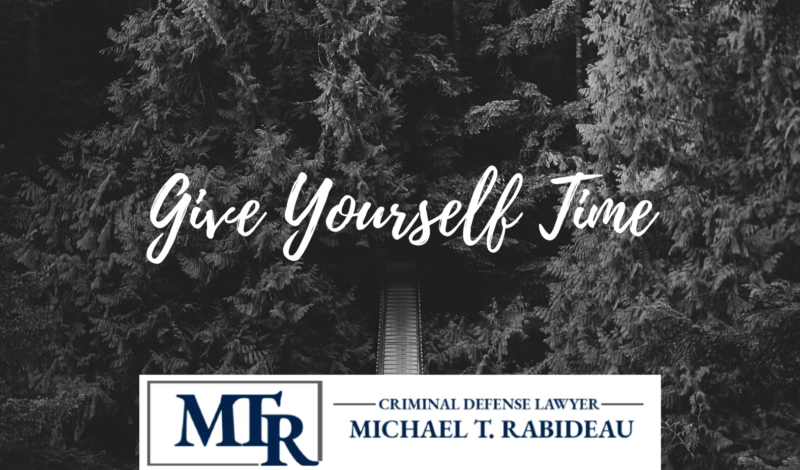Overview of the Marchman Act
The Marchman Act, officially known as the Hal S. Marchman Alcohol and Other Drug Services Act of 1993, is a Florida law that provides for the involuntary assessment and treatment of individuals struggling with substance abuse. It allows families and loved ones to petition the court to order someone into addiction treatment if they meet certain criteria.
So what happens after a Marchman Act petition is granted by a judge? Here is an overview of the typical process:
Assessment and Stabilization
If a Marchman Act petition is granted, the first step is an assessment and stabilization period at a licensed detox or addiction treatment facility. The individual will be held at the facility for up to 5 days while they are evaluated and monitored by medical and clinical staff.
The main goals during this phase are to:
- Medically stabilize the individual by managing withdrawal symptoms and any co-occurring medical issues. Detoxification from drugs and alcohol will begin if needed.
- Conduct a comprehensive biopsychosocial assessment to determine the severity of the substance use disorder and any co-occurring mental health disorders.
- Develop an initial treatment plan and recommendations for the appropriate level of care needed.
The assessment usually involves lab tests, psychological testing, physical exam, mental health evaluation, and substance use history. Information may also be gathered from family members with signed consent.
Petition for Involuntary Treatment
Within the 5 day assessment period, the treatment facility can file a petition with the court to keep the individual for further involuntary treatment if certain criteria are met.
For the petition to be approved, clear and convincing evidence must show:
- The individual has a substance use disorder or co-occurring mental health disorder.
- The individual is unlikely to voluntarily seek treatment after being assessed.
- The individual poses a threat of harm to themselves or others if not treated.
- The individual lacks judgment to make rational decisions about their need for treatment.
A hearing will usually be scheduled within 10 days where a judge will review evidence and rule on the petition for further involuntary treatment.
Involuntary Treatment Period
If approved by a judge, the individual can be kept in involuntary inpatient or outpatient treatment for up to 90 days.
The Marchman Act gives the treatment facility authority over the individual, who may not leave without permission during this period. The goal is to provide intensive care to stabilize their substance use disorder before transitioning them to voluntary treatment.
Involuntary treatment may include:
- Medication management
- Individual and group counseling
- Cognitive behavioral therapy
- 12-step or peer support groups
- Case management
- Discharge planning
Facilities must conduct progress reviews every 60 days and release the individual as soon as they are deemed stable enough for voluntary treatment. The court can also order early release if recommended by the treatment provider.
On average, stays under the Marchman Act are 30-45 days. Only the most severe cases requiring stabilization stay for the full 90 days of involuntary treatment allowed by law.
Transfer to Voluntary Treatment
After the period of involuntary treatment, the goal is to engage the individual in voluntary, longer-term treatment to continue their recovery process.
This may involve transferring them to another facility that offers:
- 30-90 day inpatient rehab
- Partial hospitalization
- Intensive outpatient treatment
- Standard outpatient programs
- Sober living communities
The treatment team will make recommendations based on the individual’s needs, insurance coverage, and ability to pay. The purpose is to find the right level of ongoing care without any lapses after the involuntary hold ends.
A discharge plan is created that provides referrals for voluntary treatment programs, support groups, medication management, and community-based services. This helps the transition go smoothly while reducing the risk of relapse.
Aftercare Planning
Sustained recovery depends on thorough aftercare planning for the months and years after initial treatment. An aftercare plan may involve:
- Outpatient therapy
- Sober housing
- Medication assisted treatment
- Peer support groups
- Job training
- Family therapy
- Case management
The individual is encouraged to participate in developing their aftercare plan. Follow-up care ranging from once a week to once a month is arranged based on the person’s level of motivation and engagement.
The goal is to provide a comprehensive system of care within the community that supports the individual’s long-term recovery goals. This reduces the need for future crisis interventions like the Marchman Act.
How Successful is the Marchman Act?
Research shows the Marchman Act can be effective at getting individuals into life-saving detox and addiction treatment:
- A 2020 study found a 89% rate of follow-up treatment retention for those who underwent involuntary detoxification under the Marchman Act, compared to 54% for those who had voluntary detox.
- In another study, 80% of Marchman Act patients who completed involuntary stabilization went on to enroll in voluntary treatment programs afterwards.
However, commitment to recovery has to come from within for long-term success. Studies show adherence is improved when individuals perceive the intervention as caring and non-threatening. When used correctly, the Marchman Act can be the first step towards lasting change.
FAQs About the Marchman Act
Here are some frequently asked questions about the Marchman Act process:
What happens if the person refuses to go to treatment?
If a Marchman Act petition is granted but the individual refuses to report to the treatment facility, law enforcement will apprehend them and transport them. Resistance could also lead to contempt charges. The court order must be followed.
Can the Marchman Act be used on a minor?
Yes, the Marchman Act applies to minors but has specific requirements for those under 18. A qualified professional must conduct a separate assessment to determine if involuntary treatment would be in the minor’s best interest. Additional court hearings are also required.
How long does the Marchman Act stay on your record?
The Marchman Act proceeding and treatment records are confidential under Florida law. However, the court order will remain on a person’s legal record indefinitely unless steps are taken to seal or expunge it. Consult an attorney about options for record sealing after successful treatment.
Call Today
Need an Experienced Criminal Defense and Marchman Act Attorney? Contact Michael T. Rabideau Today!
Michael T. Rabideau is a highly experienced trial attorney specializing in Criminal Defense and Marchman Act cases across South Florida. With offices in West Palm Beach, Wellington, and Boca Raton, he has helped countless individuals fight criminal charges and get court-ordered addiction treatment for loved ones.
If you or a family member is facing criminal charges, don’t risk your future on an inexperienced lawyer. Michael T. Rabideau has successfully defended clients against a wide array of charges including DUI, drug crimes, theft, domestic violence, and more. His deep knowledge of the legal system and advocacy skills consistently lead to the most favorable outcomes for his clients.
Additionally, if substance abuse is tearing your family apart, the Marchman Act allows relatives and friends to legally intervene and get court-ordered assessment, detox, and rehabilitation for addicts. Michael T. Rabideau has extensive experience filing Marchman Act petitions to help break the cycle of addiction and give people their lives back.
Michael Rabideau practices in the following areas of law in addition to assisting families and loved ones with a Marchman Act:
— Assault & Battery
— Child Abuse & Child Neglect
— Computer Crimes
— Domestic Violence
— Driving Violations
— Drug Crimes Lawyer
— DUI
— Expungements
__ Federal Crimes
— Firearms Offense
— Fleeing & Eluding
— Hit & Run
— Juvenile Crimes
— Manslaughter
— Marijuana Possession Lawyer
— Murder
— Probation Violations
— Resisting Arrest
With convenient office locations, competitive rates, and a commitment to personalized service, Michael T. Rabideau is the attorney you want on your side. Don’t wait to get the strong legal defense you deserve. Contact him today at (561) 820-4848 for a free case review. Justice delayed is justice denied. Call now!







